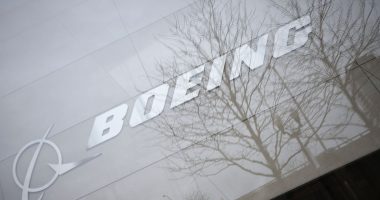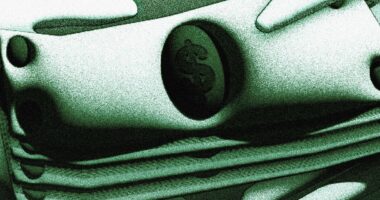
SINGAPORE—China’s government is restricting the use of Tesla Inc.’s TSLA -1.63% vehicles by military staff and employees of key state-owned companies, citing concerns that the data collected by the cars could be a source of national security leaks, according to people familiar with the effort.
The move follows a government security review of Tesla’s vehicles, which Chinese officials said raised concerns because the cars’ cameras can constantly record images, the people said, as well as obtain various data such as when, how and where the cars are being used, and the contact list of mobile phones that are synced to the cars. The government is concerned that some data could be sent back to the U.S., the people said.
The restriction comes as President Xi Jinping increasingly moves China away from foreign technology as Beijing’s technological battle with the U.S. intensifies. The move appears to mirror U.S. restrictions on the use of communications equipment made by a slate of Chinese companies including Huawei Technologies Co., the Chinese tech giant that Washington has labeled a national security threat over fears it could spy for Beijing—allegations that Huawei denies.
Fears over how data is handled by tech manufacturers also underscores how the rising popularity of highly digitalized cars—loaded with cameras and sensors and with built-in connectivity that allows car makers to amass data—is stoking concerns over privacy and even national security.
The Chinese government has informed some of its agencies to ask their employees to stop driving Tesla cars to work, the people said. Some of the people said Tesla cars were also banned from driving into housing compounds for families of personnel working in sensitive industries and state agencies. They were told by their agencies that among the government’s concerns is that Tesla vehicles can be constantly in record mode, using cameras and other sensors to log various details, including short videos.
The restriction applies to all individuals in military complexes, sensitive state-owned enterprises such as aerospace firms, and also government agencies, the people familiar said. China’s State Council Information Office didn’t immediately respond to a request for comment.
Tesla declined to comment on the government’s move. It referred The Wall Street Journal to a comment it has previously made to Chinese media in response to previous data security concerns. “Tesla’s privacy protection policy complies with Chinese laws and regulations. Tesla attaches great importance to the protection of users’ privacy,” it said. It also said in-car cameras aren’t turned on for all Tesla vehicles in China.
The China market has become increasingly important for Tesla. Deliveries in the country last year helped the company achieve roughly 500,000 vehicle deliveries globally, a record. Tesla’s Chief Executive Elon Musk has been widely feted in the country for years.
But as Tesla ramps up production in the country, it has also come under regulatory scrutiny. The company was summoned last month by authorities citing consumer complaints about quality issues.
On Saturday, Mr. Musk is set to participate online in a state-hosted annual global economic gathering in Beijing called China Development Forum, where he is expected to make a speech. Attendees of the event generally include Chinese officials.
China has been moving to bolster its own technology sector after Edward Snowden revealed infiltration of key Chinese computer networks by the U.S. National Security Agency in 2013, and has been urging government agencies to start replacing foreign technology suppliers unless the products can be seen as “safe and controllable” by security inspectors.
More on Tesla and the Electric-Vehicle Market
It has also released cybersecurity- and data privacy-related rules in recent years, or drafts of them. That includes a draft version of the Personal Information Protection Law, released in October, which mandated that certain organizations that process personal data are required to store the personal information in mainland China.
In recent years, auto makers globally have collected massive amounts of data from cars running on the streets, relying on the cameras, sensors and computers loaded onto the vehicles used to detect what is surrounding them for safety features. Those data are stored by auto makers in cloud-based servers.
Tesla vehicles have eight surround cameras, 12 ultrasonic sensors and a radar for its autopilot system, the company said on its website. The Model 3 and Model Y vehicles also have a camera inside the cabin, installed above the rearview mirror.
When enabled, this camera captures a short video clip and shares that with Tesla in the case of an accident, according to Tesla’s website. Tesla said such clips are intended to capture the few seconds before a safety event and would be used by Tesla to develop safety features.
The Model 3 was the bestselling electric vehicle in China last year, with more than 138,000 sold, according to the China Passenger Car Association—an eighth of the 1.11 million EVs sold nationwide.
The restrictions on Tesla appear limited when compared with U.S. actions against Huawei in recent years. Washington has lobbied allies to shut out the leading 5G equipment maker as a Trojan horse that, once inside critical infrastructure in the West, can be used by China to spy and steal sensitive information, posing a security and economic threat to the U.S. and its allies. Huawei has repeatedly said it would never do so.
Write to Keith Zhai at [email protected] and Yoko Kubota at [email protected]
Copyright ©2020 Dow Jones & Company, Inc. All Rights Reserved. 87990cbe856818d5eddac44c7b1cdeb8









